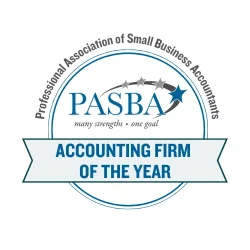Explore the differences between an S Corp and an LLC. Find the business structure that aligns perfectly with your entrepreneurial vision in this guide.
Navigating Business Structures: S Corp Vs LLC Explained
When starting a business, one of the most important decisions to make is choosing the right business structure. Your business structure will dictate how your business is taxed, who holds liability for the company’s debts, and even how you can raise capital. With so much at stake, it’s essential to explore your options before deciding.
Two popular business structures that entrepreneurs often consider are S Corporations (S Corp) and Limited Liability Companies (LLC). Both have their own unique features and benefits, making them popular choices for small businesses. The following guide will explore the differences between an S Corp and LLC to help you determine which structure best fits your business.
What Is An S Corp?
An S Corporation (S Corp) is a business structure that is formed by registering as a corporation with the state and then electing to be taxed under Subchapter S of the Internal Revenue Code.
An S Corp is similar to a C Corporation in many ways; for example, they both have shareholders, officers, and directors. However, the main difference lies in how these entities are taxed. Unlike C Corps, S Corps are not subject to double taxation, where the corporation’s profits are taxed at the corporate level and then again on individual tax returns when distributed as dividends. Instead, S Corps are “pass-through” entities, meaning the profits, losses, and deductions of the company are passed through to the shareholders’ personal tax returns.
Some other key characteristics of an S Corp include:
• Must have a maximum of 100 shareholders
• Shareholders must be U.S. citizens or resident aliens
• Can only issue one class of stock
• Must adhere to strict IRS regulations and filing requirements
• Shareholders must pay themselves a reasonable salary and report it on their personal tax returns
What Is An LLC?
An LLC offers owners, known as members, limited liability protection from the company’s debts and legal actions. LLCs with one owner(“single-member”) are not considered separate taxable entities by the IRS, and are filed for tax purposes similar to a Schedule C sole proprietorship. LLCs with multiple owners (“members”) are seen for tax purposes as a partnership, so profits and losses are passed through to the members’ personal tax returns. To add another layer of complexity, LLCs with one owner or multiple owners can also “elect” to be treated as an S corporation or a C corporation for tax purposes.
The main benefit of an LLC is the limited liability protection for its members. This means that members of the LLC are not personally responsible for any debts and liabilities the company may have. Additionally, LLCs offer flexibility in management structure and tax options. Members of an LLC can decide whether they want to be taxed as a corporation, a partnership, or a sole proprietorship, depending on what best fits their business needs.
Some other key characteristics of an LLC include:
• No limit on the number of members
• Members can be individuals or other entities (such as trusts or corporations or trusts)
• Can choose to be a manager-managed or a member-managed company
• Fewer regulations and less paperwork compared to S Corps
What Is The Difference Between LLC & S Corp?
Both the S Corp and LLC are hybrid business structures that combine the limited liability of a corporation with the tax benefits of a partnership. However, there are some key differences between the two that entrepreneurs should consider when deciding which structure is best for their businesses:
Formalities And Compliance
S Corps have stricter administrative requirements compared to LLCs. For instance, articles of incorporation must be filed with the state, and annual meetings must be held to elect directors, record meeting minutes, and approve corporate decisions. S Corps also have stricter guidelines for ownership structure, with shareholders limited to U.S. citizens or permanent residents.
On the other hand, LLCs do not have the same formalities and compliance requirements. While some states may require an operating agreement, LLCs are not required to hold annual meetings or keep corporate minutes. Additionally, there are no restrictions on ownership structure for LLCs.
Ownership And Management
S Corps are limited to a maximum of 100 shareholders, while LLCs do not have any restrictions on the number of members. S Corps are limited because they are not allowed to have foreign shareholders, and all shareholders must be individuals, estates, or certain types of trusts.
LLCs have more flexibility in ownership structure. Members can include individuals, corporations, non-U.S. citizens, and even other LLCs.
Additionally, LLCs can choose their management structure as either member-managed or manager-managed. S Corps must have a board of directors and officers, limiting the management structure options.
Profit And Loss Allocation
S Corps must allocate profits and losses based on each shareholder’s percentage of ownership. This means that shareholders with a higher percentage of ownership will receive a more significant portion of the company’s profits or be responsible for a larger portion of its losses.
LLCs have more flexibility in how they distribute profits and losses among members. Members can choose to allocate profits and losses equally, based on each member’s contribution to the company, or through a custom agreement.
Taxation Differences
As mentioned before, both S Corps and LLCs are pass-through entities, meaning the profits and losses are passed through to the shareholders’ personal tax returns. However, there are some differences in how each entity is taxed.
S Corps must pay salaries to their officers, who must report these salaries on their personal tax returns. The remaining profits can then be distributed as dividends, which may have different tax implications for the shareholders.
LLCs do not have this requirement and can instead choose how they want to be taxed. Members can choose to be taxed as a sole proprietorship, partnership, or corporation, depending on what best fits their business needs.
H2: Choosing Between An S Corp & LLC
When choosing between an S Corp and an LLC, there is no one-size-fits-all answer. Each business’s unique needs and goals must be considered to determine the best structure for them. Some factors that should be taken into account when making this decision include liability protection, tax implications, management structure, and ownership restrictions. When deciding on a business structure, keep the following in mind:
Business Goals & Long-Term Plans
One of the most important factors to consider when choosing between an S Corp and an LLC is a business’s goals and long-term plans. For example, if a business anticipates seeking outside investment or going public in the future, an LLC may not be the best option. This is because LLCs do not allow for stock issuance, making it more difficult to raise capital or sell ownership interests. On the other hand, if you plan to keep your operations small and stay privately owned, an LLC may offer more flexibility and simplicity.
S Corps have more traditional structures and ownership restrictions that can make it easier to attract investors and eventually sell shares to the public. However, this also means more formalities and compliance requirements. It’s important to consider where you see your business in the future and choose a structure that aligns with those goals.
Ownership Structure & Restrictions
As previously mentioned, S Corps have strict restrictions on ownership structure and who can be a shareholder. This may not be ideal for businesses that want to include foreign investors or have more than 100 shareholders.
LLCs, on the other hand, offer more flexibility in ownership structure and allow for a diverse range of members. This can be beneficial for businesses looking to bring on partners or investors from different backgrounds.
Administrative & Compliance Preferences
If you prefer a more structured and formal business environment, an S Corp may be a better fit. However, if you want to minimize administrative tasks and have more flexibility in running your business, an LLC may be a better choice. You should consider which structure aligns with your personal preferences and management style.
When it comes to compliance, consider the level of administrative tasks and record-keeping required for each structure. If you are willing to keep up with the stricter requirements of an S Corp, then this may not be a significant factor for you. However, an LLC would be a better option if you prefer a simpler compliance process.
Industry-Specific Considerations
Certain industries may have specific regulations and requirements that may make one structure more favorable than the other. For example, some states require certain professions, such as accountants or lawyers, to form as LLCs rather than S Corps. This is because LLCs provide more protection against personal liability for these professions.
Researching and understanding any industry-specific regulations that may impact your decision between an S Corp and an LLC is critical.
Tax Implications & Preferences
Other significant factors to consider are tax implications and preferences. Even though both business structures are pass-through entities, there are differences in how they are taxed. LLCs offer more flexibility in terms of taxation as they can choose to be taxed as a sole proprietorship, partnership, S Corp, or C Corp, whereas an S Corp can only be taxed as an S Corp, meaning it can only be taxed at the individual level. This can have a significant impact on the taxes paid by the business and its owners.
It is important to consult with a tax professional to determine which structure would result in the most favorable tax situation for your business. Additionally, consider your personal tax preferences and how they align with each structure’s taxation method.
J.R. Martin & Associates Is Your Entity Selection Expert
Choosing the correct business entity is a vital decision that can have a huge effect on the success and growth of your business. You should consult with legal and financial professionals to help ensure that you make the right decision for your specific circumstances.
At J.R. Martin & Associates, we specialize in helping businesses select the most suitable structure for their needs. We understand the complexities and nuances of each entity type and can guide you through the decision-making process.
Our team will analyze your business goals, ownership structure, industry regulations, tax situation, and other factors to provide you with personalized recommendations. We also offer ongoing support to help ensure your chosen structure continues to meet your needs as your business grows and evolves.
Don’t leave such an important decision to chance. Contact J.R. Martin & Associates today for expert legal guidance on selecting the right entity for your business. Let us help you lay a solid foundation for your company’s success.



